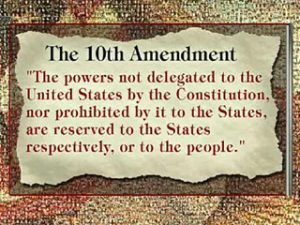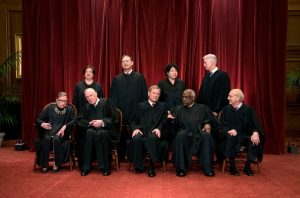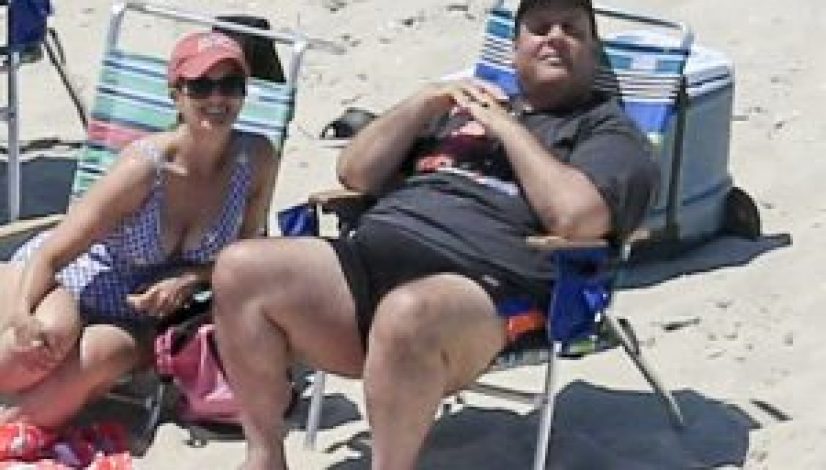A PAPSA Repeal May Be Gateway to Legalized Marijuana
When we think of the fight to legalize marijuana, how often do we make the connection to sports betting? I’ll answer that for you, rarely, if ever. Sports gambling contributes nearly $140 billion dollars to the U.S. economy annually, and as a friendly reminder it is illegal in all but four states; Nevada, Delaware, Oregon and Montana. The only time I can think of a connection between sports betting and marijuana is when a star player gets suspended for weed in the NFL and the bets in Las Vegas swing to the other team.
At this point you have to be asking, how can sports betting be connected to legalized weed? Let me explain.
In 1992 Congress passed the Professional and Amateur Sports Protection Act (PAPSA). Why was PAPSA passed? Well, it made it illegal for all states to legalize gambling, all states except those 4 that were previously mentioned. Nevada, Delaware, Oregon, and Montana had already legalized sports betting.
Now if you’re not into the legislative process, constitutional law, or states’ rights, you probably don’t see anything wrong with the PAPSA law, and see it as the government being the government. If you fall into the line of thinking that it’s just the government doing what they do, you were not alone for nearly 20 years. In that time span, no one seriously questioned the law. No one, until Chris Christie and the state of New Jersey back in 2011.
In 2011 the residents of New Jersey voted to legalize sports gambling which allowed for the legislature to pass and Governor Christie to sign a law allowing for sports betting at casinos and horse tracks. This new law was successfully challenged by sports leagues and struck down by a Federal Appeals court which upheld the constitutionality of PAPSA.
 Governor Chris Christie
Governor Chris Christie
In 2014 Christie tried again to legalize sports betting in New Jersey when a state legislator introduced another bill to repeal sports betting prohibition, which Christie also signed into law. This new law was also challenged by multiple sports leagues and was again defeated in Federal Court.
That last defeat brings us to present day and Christie’s last hurrah as New Jersey’s Governor. New Jersey and Christie brought a PASPA appeal to the stage once again, but this time asked the Supreme Court of the United States to weigh in on the issue once and for all. General consensus was that the Supreme Court would not hear this case and would push it back to the lower courts, but the highest court in the land surprised many when they opted to take the case which has New Jersey and other states all curiously awaiting their decision.
 Now that you know how we got here, you have to be wondering about the connection to cannabis. I’m getting there but you should understand the argument the state of New Jersey is making, which will help you make the connection to weed. The argument for the state of New Jersey hinges on the 10th Amendment. The 10th Amendment of the U.S. Constitution states: “The powers not delegated to the United States by the Constitution, nor prohibited by it to the States, are reserved to the States respectively, or to the people.”
Now that you know how we got here, you have to be wondering about the connection to cannabis. I’m getting there but you should understand the argument the state of New Jersey is making, which will help you make the connection to weed. The argument for the state of New Jersey hinges on the 10th Amendment. The 10th Amendment of the U.S. Constitution states: “The powers not delegated to the United States by the Constitution, nor prohibited by it to the States, are reserved to the States respectively, or to the people.”
The 10th Amendment arises out of the anti-commandeering legal doctrine that at it’s base level is a protection of states and the individual from congressional overreach. Put another way, if it is a power that is not expressly provided to the federal government then that power belongs to the state. How that relates to PAPSA text is directly related to what PAPSA doesn’t do. PAPSA does not regulate sports gambling, it does not set out rules for sports betting, it does not bring any clarity to the idea of sports betting. The other thing it does not do is ban sports betting across the board. PAPSA law exists in a twilight zone nether world of telling the states that they can’t do something even if they and their citizens want to do it. What PAPSA text does tell the states that have laws against sports betting is that they can’t change those laws.
Back in New Jersey, Chris Christie and company are saying that the people voted, the legislature passed the bill, and the Governor signed it into law. By denying this from becoming law, the federal government is unduly burdening the state with a law that they do not want (I saw your light bulbs go off, pretty sure you just made the connection to weed, keep reading). In Printz v. United States (1997) the Supreme Court held that the Federal Government may neither issue directives requiring the states to address particular problems, nor command the states’ officers, or those of their political subdivisions, to administer or enforce a federal regulatory program. New Jersey’s argument is that by telling them they can’t repeal their own law they are being forced to enforce a federal regulatory program for the government that they have every right as sovereign state to reject.
All that being said, we cannot forget about the Supremacy clause of the Constitution. While states are sovereign
 the federal government still has supreme rule of the land as stated in the U.S. Constitution (Article VI, Clause 2) “the Constitution, federal laws made pursuant to it, and treaties made under its authority, constitute the supreme law of the land…”. The key to the Supremacy Clause is not just who makes the rules, but who enforces the rules. The court states in New York v. United States, 505 U.S. 144, 188 (1992) “When Congress encourages states to adopt and administer a federally prescribed program, both governments maintain their accountability for their decisions. When Congress compels the states to act, state officials will bear the brunt of accountability that properly belongs at the national level”. Put another way, if Congress wants to enforce a federal law, the federal government has to take responsibility for enforcing that federal law.
the federal government still has supreme rule of the land as stated in the U.S. Constitution (Article VI, Clause 2) “the Constitution, federal laws made pursuant to it, and treaties made under its authority, constitute the supreme law of the land…”. The key to the Supremacy Clause is not just who makes the rules, but who enforces the rules. The court states in New York v. United States, 505 U.S. 144, 188 (1992) “When Congress encourages states to adopt and administer a federally prescribed program, both governments maintain their accountability for their decisions. When Congress compels the states to act, state officials will bear the brunt of accountability that properly belongs at the national level”. Put another way, if Congress wants to enforce a federal law, the federal government has to take responsibility for enforcing that federal law.
Jumping back to New Jersey, the federal government has told all states what they can’t do (repeal sports betting laws), but the federal government has no skin in the game when it comes to enforcing the federal requirement
 other than ruling against states that try to repeal laws their citizens no longer want. New Jersey’s legislature is ready to repeal, and their governor is ready to sign a new law. If the Supreme Court sees PAPSA as a violation of the 10th amendment, the state of New Jersey will have sports betting by the beginning of the next NFL season, depending on when SCOTUS makes a ruling. If the Court lands on the side of the Supremacy clause, PAPSA would be upheld and this would most likely ruin sports betting legalization efforts for the foreseeable future.
other than ruling against states that try to repeal laws their citizens no longer want. New Jersey’s legislature is ready to repeal, and their governor is ready to sign a new law. If the Supreme Court sees PAPSA as a violation of the 10th amendment, the state of New Jersey will have sports betting by the beginning of the next NFL season, depending on when SCOTUS makes a ruling. If the Court lands on the side of the Supremacy clause, PAPSA would be upheld and this would most likely ruin sports betting legalization efforts for the foreseeable future.
Now that we know how we got here and what the arguments are, how do we connect this all to marijuana?!? The
 attenuated argument for marijuana as it relates to PAPSA is again the 10th amendment. The United States has 30 states with various marijuana legalization laws on the books. The people want weed to be legal, the legislatures are willing to pass bills for signature to their governors, and governors are willing to sign various forms of legalization into law. What stands in the path to legalization is the federal government. The key difference between the prohibition of marijuana and sports betting is the federal government’s willingness and ability to enforce it.
attenuated argument for marijuana as it relates to PAPSA is again the 10th amendment. The United States has 30 states with various marijuana legalization laws on the books. The people want weed to be legal, the legislatures are willing to pass bills for signature to their governors, and governors are willing to sign various forms of legalization into law. What stands in the path to legalization is the federal government. The key difference between the prohibition of marijuana and sports betting is the federal government’s willingness and ability to enforce it.
When it comes to weed, the feds have taken all the steps of controlling and enforcing the law. They have the Drug Enforcement Agency (DEA), the FBI and Department of Homeland Security all enforcing drug prevention efforts. The federal government’s willingness to commit time, money and manpower to the cause of prevention of drug use is distinctly different than what they are willing to commit to the prevention of sports betting. Also, the feds have taken the step of adding marijuana to the federal regulations, clearly stated in Title 21 Code of Federal Regulations (C.F.R.) §§ 1308.11 through 1308.15, marijuana is a Schedule I drug. They classify it, they enforce it, and Attorney General Jeff Sessions has committed to taking the brunt of responsibility for making sure it stays that way.
For PAPSA, Congress passed the responsibility of dealing with sports betting off on the states and took no responsibility for itself. There is no National Anti-Sports Betting Agency, there is no task force assembled to curtail sports betting in America. Even in the states where it’s legal, there is no attempt to regulate the sport or setup some form of legal parameters for those states to abide by. Oh and by the way, the very fact that that those four states were allowed to keep their sports betting has created issues regarding enforcement, because in 46 states they are tasked with preventing while the remaining 4 are tasked with controlling.
If Chris Christie and the state of New Jersey are successful in winning a PASPA repeal from the Supreme Court, there is a good chance that a state may try a similar argument for marijuana. While it may be worth the effort since a court could be empathetic towards the cause of marijuana advocates and see legalization of marijuana as a path to criminal justice reform, the reality is that the success of this claim is highly unlikely. The federal government is nowhere nearly as invested in preventing sports betting as it is in stopping people from using marijuana. Given the law enforcement agencies, the actual federal regulations and designations established to thwart marijuana use, it is relatively easy to establish the federal government’s commitment to fighting the drug. The remaining question of legal significance comes when you analyze the will of the people in the states, if you compare the number of states with some form of legalization to the states where marijuana remains prohibited, then an argument may be found.
For now we’ll have to watch what happens with the PAPSA appeal and if it goes the way of New Jersey and Chris Christie. The question will then be; does another state have the fortitude take a marijuana challenge to the Supreme Court on similar grounds and will the court look to the hypothetical PASPA repeal as a precedent?
Facebook Comments
Tags
chris christieDelawareMontananevadanew jerseyOregonPASPAPASPA New JerseyPASPA SCOTUSPASPA Supreme Courtsports bettingsports betting legal


